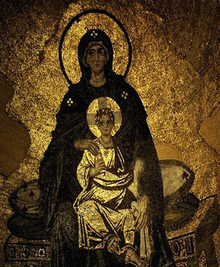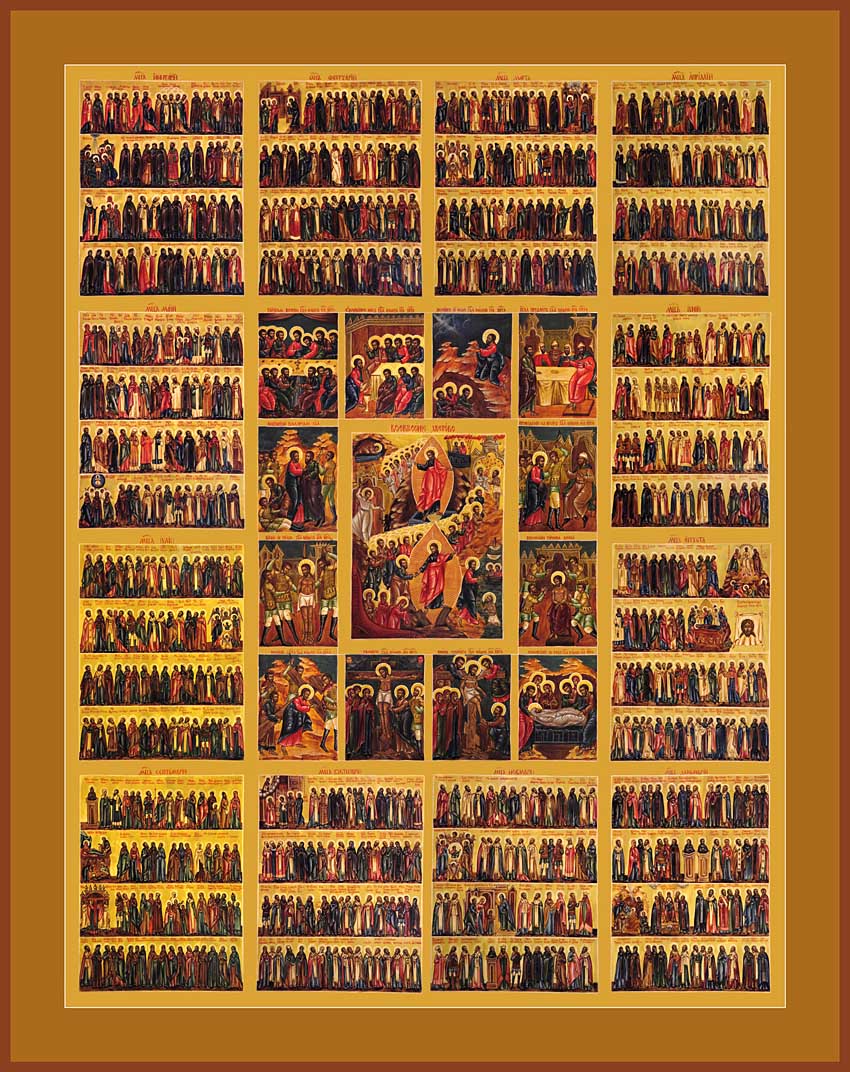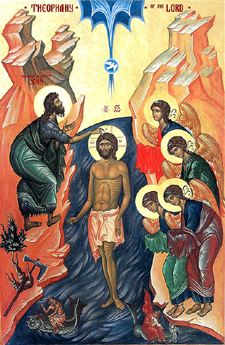The Veneration of the Theotokos According to the Bible
 We Orthodox Christians honor the Theotokos Mary more than all the saints and angels of heaven for she was found worthy to give birth to Christ, the Savior of the world by the overshadowing of the Holy Spirit. The honor we render to the Mother of the Lord is exceptional, most honorable and most revered, for she is not only "a friend of His,” as are the other saints, but she is Most Holy (Panagia) above all the saints and all the angels.
We Orthodox Christians honor the Theotokos Mary more than all the saints and angels of heaven for she was found worthy to give birth to Christ, the Savior of the world by the overshadowing of the Holy Spirit. The honor we render to the Mother of the Lord is exceptional, most honorable and most revered, for she is not only "a friend of His,” as are the other saints, but she is Most Holy (Panagia) above all the saints and all the angels.
For this the angels as much as people venerate and honor her with prayers, hymns, church services and eulogies. Similarly the Archangel Gabriel greeted her at the annunciation (Luke 1:28-29) as well as Saint Elizabeth, the mother of Saint John the Baptist (Luke 1:40-43).
Making Death into a Means to Spiritual Transformation
 In a 1789 letter to Jean-Baptiste Leroy, Benjamin Franklin wrote, “In this world nothing can be said to be certain, except death and taxes.” Yet, most of us spend our lives doing everything possible to avoid them both. Even when a loved one dies some try to escape this grim reality by holding “celebration of life” events rather than a more traditional wake or funeral service. We are surrounded and inundated by cheery, but inane, messages proclaiming youthful vigor, rejuvenation, and bliss in marketing campaigns. All of this makes the grief process more difficult and a search for meaning all the more obscure.
In a 1789 letter to Jean-Baptiste Leroy, Benjamin Franklin wrote, “In this world nothing can be said to be certain, except death and taxes.” Yet, most of us spend our lives doing everything possible to avoid them both. Even when a loved one dies some try to escape this grim reality by holding “celebration of life” events rather than a more traditional wake or funeral service. We are surrounded and inundated by cheery, but inane, messages proclaiming youthful vigor, rejuvenation, and bliss in marketing campaigns. All of this makes the grief process more difficult and a search for meaning all the more obscure.
HOMILY ON THE SUNDAY OF ALL SAINTS
 On the Signs of God’s Chosen by St. Ignatius (Brianchaninov)
On the Signs of God’s Chosen by St. Ignatius (Brianchaninov)
Whosoever therefore shall confess me before men, him will I confess also before my Father which is in heaven. But whosoever shall deny me before men, him will I also deny before my Father which is in heaven. He that loveth father or mother more than me is not worthy of me: and he that loveth son or daughter more than me is not worthy of me. And he that taketh not his cross, and followeth after me, is not worthy of me. Then answered Peter and said unto him, Behold, we have forsaken all, and followed thee; what shall we have therefore? And Jesus said unto them, Verily I say unto you, That ye which have followed me, in the regeneration when the Son of man shall sit in the throne of his glory, ye also shall sit upon twelve thrones, judging the twelve tribes of Israel. And every one that hath forsaken houses, or brethren, or sisters, or father, or mother, or wife, or children, or lands, for my name's sake, shall receive an hundredfold, and shall inherit everlasting life. But many that are first shall be last; and the last shall be first.
(Matthew 10:32-33, 37-38; 19:27-30)
The Discipline of Fasting
 By Metropolitan Kallistos (Ware)
By Metropolitan Kallistos (Ware)
Within this developed pattern of Great Lent, what precisely do the rules of fasting demand? Neither in ancient nor in modern times has there ever been exact uniformity, but most Orthodox authorities agree on the following rules:
Discourse On the Day of the Baptism of Christ
 We shall now say something about the present feast [of Holy Theophany, the Baptism of Christ]. Many celebrate the feastdays and know their designations, but the cause for which they were established they know not. Thus concerning this, everyone knows that the present feast is called Theophany; but what this is, and whether it be one thing or another, they know not. And this is shameful—every year to celebrate the feastday and not know its meaning.
We shall now say something about the present feast [of Holy Theophany, the Baptism of Christ]. Many celebrate the feastdays and know their designations, but the cause for which they were established they know not. Thus concerning this, everyone knows that the present feast is called Theophany; but what this is, and whether it be one thing or another, they know not. And this is shameful—every year to celebrate the feastday and not know its meaning.
First of all therefore, it is necessary to say that there is not one Theophany, but two: the one actual, which already has occurred, and the second in the future, which will happen with glory at the end of the world. About this one and about the other you will hear today from Paul, who in conversing with Titus, speaks thus about the present: “The grace of God hath revealed itself, having saved all mankind, decreeing, that we reject iniquity and worldly desires, and dwell in the present age in prudence and in righteousness and piety.” And about the future: “Awaiting the blessed hope and glorious appearance of our great God and Saviour Jesus Christ” (Titus 2:11-13). And a prophet speaks thus about this latter: “The sun shalt turn to darkness, and the moon to blood at first, then shalt come the great and illuminating Day of the Lord” (Joel 2:31).

